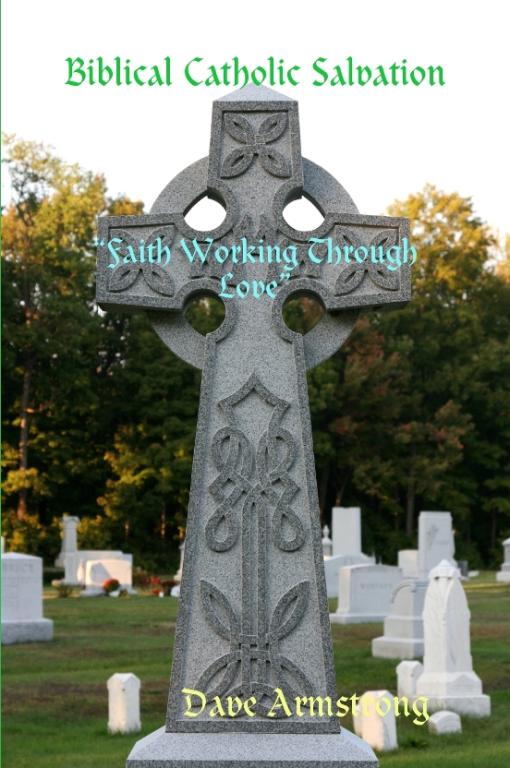
(Book and purchase information)
(7-18-14)
***
I was informed in correspondence that James White (the Reformed Baptist king of the anti-Catholics) made the following argument:
Christ is our Great High Priest. Also, Christ is all-knowing. If in fact Christ died for all men and not just the Elect, wouldn’t that result in Christ interceding as High Priest in Heaven on behalf of those He already knows will ultimately reject His sacrifice on the cross and go to Hell? Because we know that Christ intercedes for those He died for, if He died for all and not just some, that would follow that He intercedes for all. But if some go to Hell, does that mean His intercession failed?
The person who wrote — who is working through some of the Catholic-Protestant controversies — thought this was a logical argument and didn’t know how to reply to it. My response (modified and expanded slightly here) was as follows; and I came up with two arguments I have never thought about before (which is always a delightful thrill in apologetics!):
* * * * *
I think the answer is simple: yes, Christ’s intercession failed, in the cases of those who went to hell, because human free will trumps even God’s will (by God’s own design). Hence, Calvinism denies free will as well (to, in effect, [futilely] try to overcome this difficulty). Once that goes, then whatever Jesus prays for in terms of men, would inevitably happen, and that is what creates White’s intended dilemma for the person who holds to universal atonement.
God allows things to happen that go against His perfect will. The devil’s (and demons’) own fall from grace is an example. I imagine God prayed for Lucifer at one time, since he was His greatest creation. The fall of man is another (most Calvinists no longer being Supralapsarian, though I argue that Calvin himself was). Jesus chose Judas to be His disciple. He prayed for him, no doubt, as He did for all the other disciples, but the free will couldn’t be overcome (lest it not be free will at all).
Here are two examples from Scripture of God (Jesus) having one will (and in one of them, praying for it), but the people of Jerusalem and Christians another will, and (guess what?) their rebellion prevails:
Matthew 23:37 (RSV) O Jerusalem, Jerusalem, killing the prophets and stoning those who are sent to you! How often would I have gathered your children together as a hen gathers her brood under her wings, and you would not! (cf. Lk 13:34)
Jesus prayed specifically that His followers “may be one, even as we [He and the Father] are one” (Jn 17:11), and “that they may all be one; even as thou, Father, art in me, and I in thee” (17:21), and again, “one even as we are one, I in them and thou in me, that they may become perfectly one” (17:22-23).
Clearly, Christians fall far short (abominably short) of what Jesus intended for this prayer (again, out of our free will to sin and not follow His desires and commands), so it is equally plainly a failed prayer.
Likewise, God’s desires do not all come to pass, either:
1 Timothy 2:3-4 . . . God our Savior, [4] who desires all men to be saved and to come to the knowledge of the truth.
Even James White would agree that not all men are saved. Not all of God’s desires can come to pass, either, just as some of His His prayers cannot be fulfilled: because of human free will.
For over 100 pages of biblical arguments in refutation of the Calvinist TULIP, see my book, Biblical Catholic Salvation.
See also extensive discussions from the original Facebook post.
***













